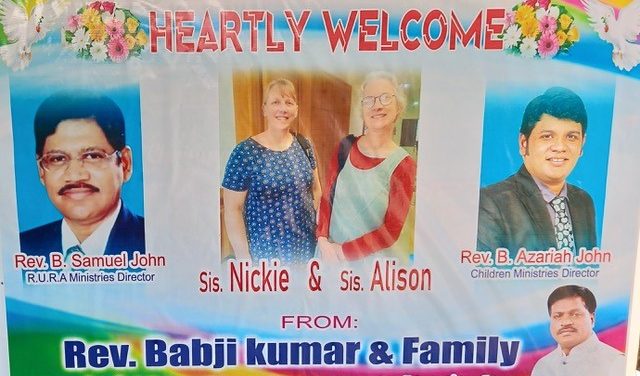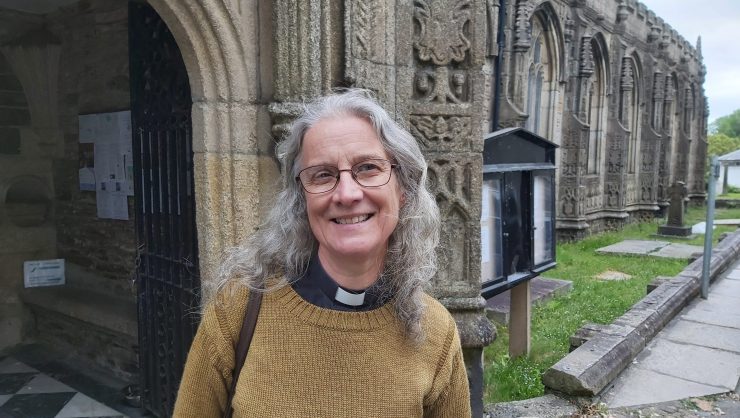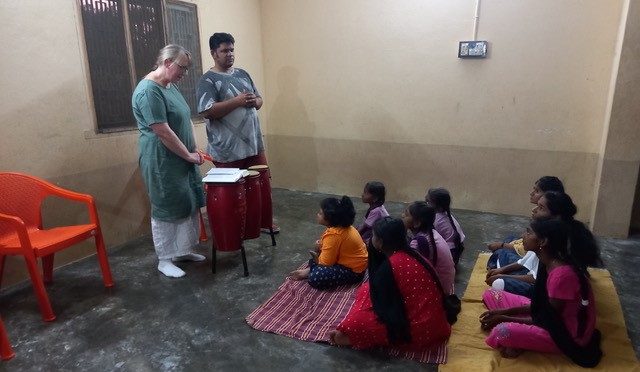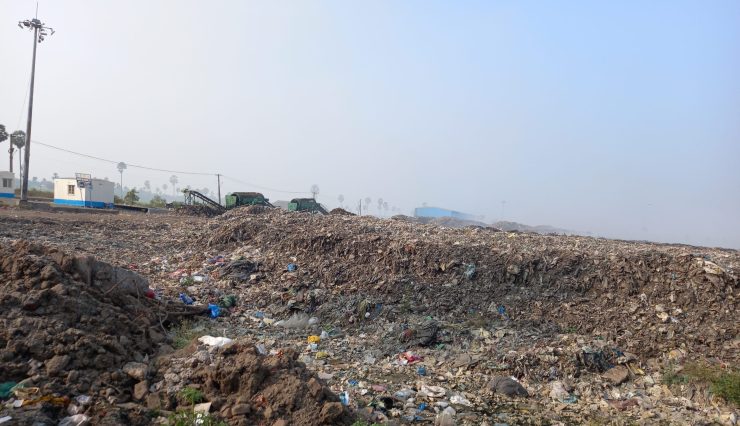A passage from India
There’s an old story that the first Christian missionaries to visit Andhra Pradesh were an unlikely pair of Victorian gentlemen called Mr Long and Mr Fox. On their first visit they’d been chased away by a couple of local men who’d thrown stones at them.
It’s said that three years later they returned, only to be greeted by two lepers who revealed themselves to be those same men who’d welcomed them rather less kindly on their initial visit.
The lepers announced their belief that they’d been dealt their fate as a punishment from the missionaries’ God, and therefore requested swift conversions to their religion.
“But oh my goodness,” declares Launceston’s Mother Alison Hardy, “I don’t much like Christianity being seen that way. It’s pretty shocking!”
Vicar for the Benefice of Launceston, Alison has known Brother Samuel John for more than three decades. In that time, she’s grown to become an enthusiastic advocate of his mission to “reach the unreached” in the Andhra Pradesh region of southern India.
Through his long labours of oversight ministry, Brother Samuel has established a network 250 new churches.
On their most recent visit, Alison and the Reverend Nicki Farr, curate at Launceston, visited several of those churches. They also visited a children’s home, a leper colony and a site occupied by displaced indigenous tribal people.
It was Brother Samuel’s father who set up the four children’s homes that have been run by the mission for many years and which are even now recovering from the impacts of the pandemic. He’d been travelling through the country and preaching the Gospel when he’d met children with distended bellies, and with nothing to eat and nowhere to go, and had resolved to give them a home.
Today, many of the children supported by the mission come from remote rural areas. Most have no family at all to care for them.
“The orphanage gives them an education and training, irrespective of their gender or caste,” Alison explains. “It can even put them through university too.”
It also saves them from severe malnutrition and the prospect of lives in crime or prostitution.
“What stood out for me was the care and compassion for the children,” says Alison. “It felt like one big family.”
“It was a delight to see their bright smiling faces full of hope and light,” Nicki adds.
It costs just £22 a month to support a child in one of these homes. Alison and Nicki are hopeful that people and parishes in Cornwall might come together to help to support those efforts.
On their recent visit, they also visited a leper colony supported by Brother Samuel’s mission. It was Alison’s third visit to the group. Her first had been 27 years ago.
At that time, the people with leprosy lived out on a beach. They were only allowed into town once a week to beg for alms.
“I was shocked,” Alison says. “They’d hide themselves away. It was considered a curse. People didn’t seem to know that leprosy can be cured.”
When she returned 15 years ago, she found that people’s understanding of the illness was still limited.
“They were amazed that we’d shake them by the hand,” she says. “They didn’t know you can’t contract leprosy that way.”
These days they at least have accommodation, built for them by a local Hindu businessman. But, as the Indian government has declared the nation to be free of the disease, there are no medicines available to treat them.
“They’re living with leprosy and dying of leprosy,” Alison says. “They have their children with them. The church provides food parcels, but can’t do anything to help arrest the illness or stop others catching it. It’s a horrendous situation. It’s pretty harrowing.”
There are 60 people in the group supported by the mission. Members of Brother Samuel’s church deliver food to them once a month. They give as much as they can afford to give. Each parcel should be enough to last them a fortnight.
Another 75 people with leprosy live in another colony nearby.
“It was such a humbling experience,” says Nicki. “The people sang and praised God with smiles of joy.”
Nicki and Alison also visited a group of indigenous tribespeople forced to leave their protected forest territory by hunger and need.
“It’s hard to scrape a living in the forest,” Alison explains. “But when they come out of the forest, they receive a very cold welcome. They can’t work or access support or education. They’re illiterate. They have to beg.”
This particular group of around 30 people live next to a rubbish dump.
“They literally live off the rubbish,” Alison says. “They welcomed us into their homes, homes made of sticks and bits of plastic.
“When it rains, the rain just runs through their hovels. It’s a pitiful existence.”
These experiences have left Alison with conflicted feelings.
“It builds my faith and gives me great encouragement to see what they’re doing with so very little,” she says. “They bring a great spiritual richness to us, and we have a lot to learn from them. And they feel blessed that we’ve travelled so far to see them. They came to us asking us to pray for them. But we felt ill-equipped to offer them anything but trust in a God who honours such spiritual hunger.
“At the same time, I also felt outraged at seeing certain sections of humanity cast aside and not cared for – indigenous people, people with leprosy, unwanted children.
“I don’t want to cast judgment on another society, but it’s shocking. Yet what warms me to the church there is that they’re reaching out with such compassion to these people.”
Their efforts are built on the goodness of people’s hearts, but, of course, none of this vital work can be accomplished entirely for free.
“Each of these strands of mission are funded by faith and prayer and the kindness of generous donors,” Nicki reminds us.
So, if you, your community or your church or faith group might like to become involved in supporting this work, please don’t hesitate to contact Alison at reverendalisonhardy@gmail.com









